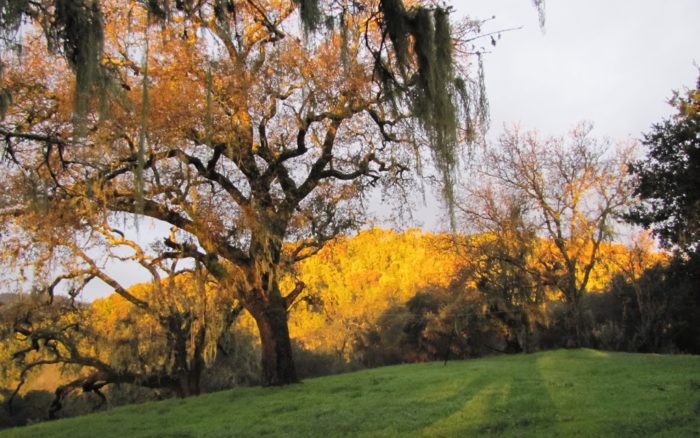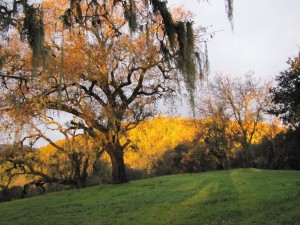Further Reflections on the Pow Wow
I wonder if their great grandchildren’s singing draws them, they who dreamed ahead even to this seventh generation. They knew well this spot upon which I stand: which plants needed thinning, how to use thinned willows to make baskets, which grasses and berries were to be harvested and when, when and how often to burn, and with what intensity.
The history of the Americas is a revisionary history moulded by western Europeans. What is not emphasized are the details of General Vallejo’s “Indian Campaign” and the blood that was spilled all around us. Many natives died as they were chased up the coast to promised land, a promise not fulfilled for years. Thousands more died of smallpox. History has made heroes of priests and soldiers; the natives, in this area being more gentle in spirit, portrayed as naive and uncivilized. The presence of their long functioning civilization, in balance with the environment for at least 10,000 years, was so different that it was not recognized for what it was, nor was the inherent know-how of how to live in these eco-systems. But as horrible as these facts are, acknowledging them is our salvation. The oblivion of ignorance deadens us; the shock of horror, grief, and shame, difficult as they are to acknowledge, are also connection, albeit painful, to the ancestral spirits and to the land under our feet.
The meadow south of our kitchen is a bowl of native and European grasses studded by enormous Valley Oaks. The stories told go back only a hundred years. It is said it was a picnic grounds, early settlers coming in wagons up this ridge. The driveway we graded to our home was the old wagon trail they followed. It descends quickly into Pickle Canyon, an old trade route to the west and a hint of history before Vallejo’s arrival. But walk into the meadow and time becomes relative, even distorted. If you are quiet, you might hear drums, or the clacking of deer hoof rattles, or the laughing rustle of oak leaves.
Each morning when I walk the dirt driveway through forest that separates us from the road, I cannot help but wonder at the mess made of these lovely Mayacamas Mountains. The fragile steep hillsides are thick in brush and downed, diseased wood, tangled with poison oak and overgrowth of bay laurel. A plethora of other native plants still exist, that is the good news: snowberry and wild honeysuckle, coyote bush and toyon, manzanita and stands of native blackberry. But we are faced with the paradox that by saving the forest from fire over the last 80 years, we are ever so much more vulnerable to a dangerous inferno. Shortsighted, we did not realize that decomposition in this forest is slow, being dry at least half of the year, an environment described as brittle. We need fire for the health of these woods, reducing the dead, diseased wood to minerals which fertilize the next generation of trees and thinning vegetation which becomes kindling— all facts which, of course, these native ancestors knew.
It is said that the Void is that realm of pure love from which we come and to which we return to rest before our next sojourn on earth. If, as in so many Native American legends, medicine is a restorative packet of this Divine Love, then it is in love of living and of life that we best approach our earth. You can feel that love at the Pow Wow, as you can feel it in the south meadow. You forget time; there is only the present. The sun sparkles on the lichens damp from night fog and hanging like Spanish moss from the Valley Oaks. A ladder-backed woodpecker hammers its staccato rhythm; a crow caws. For this moment you are in the realm of the Present, that portal of Divine Love.
And is that whispering? Oh, that we might stretch ourselves to hear!

